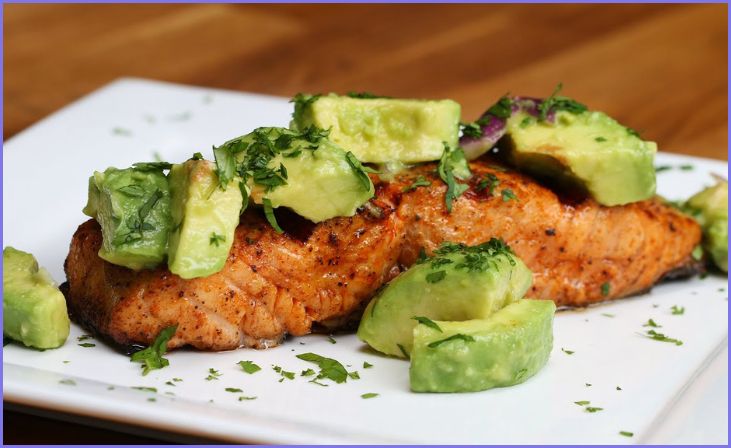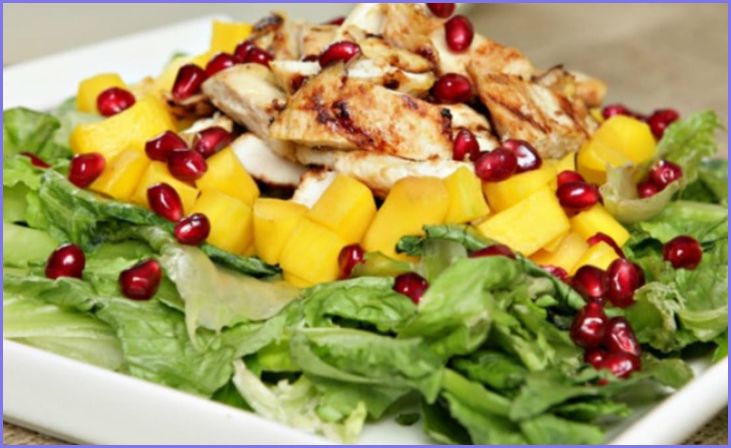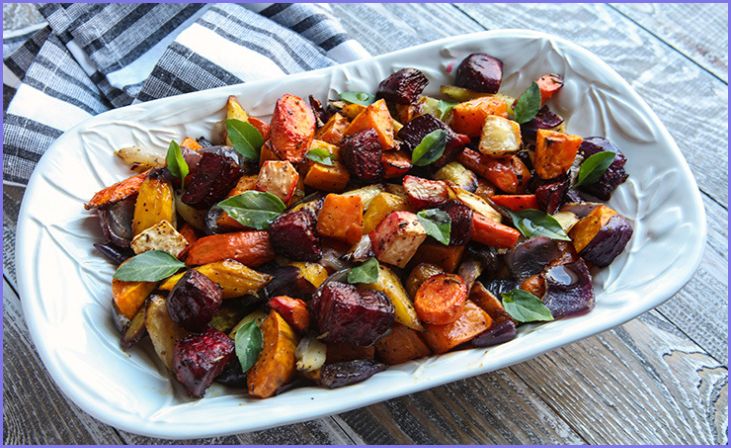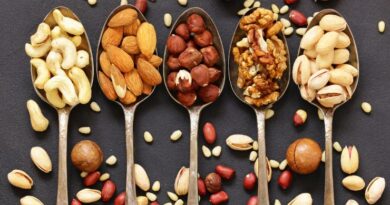Are you seeking effective ways to maintain a healthy lifestyle as you age? Look no further! In this comprehensive guide, we delve into the top 8 healthy eating tips tailored specifically for seniors. Discover the key dietary strategies that can help you lead a vibrant life, full of energy and vitality, as you embrace the golden years.
8 Healthy Eating Tips for Seniors
Healthy eating is crucial for seniors to maintain optimal health and well-being as they age. By incorporating a well-balanced diet, seniors can enhance their immune system, promote healthy aging, and prevent the onset of various age-related illnesses. Here are eight essential tips tailored specifically for seniors to ensure they receive the necessary nutrients for a vibrant and fulfilling life.
Emphasize Nutrient-Dense Foods

Emphasizing the incorporation of nutrient-dense foods, seniors should focus on a diverse array of options, including a colorful assortment of fruits such as berries, citrus fruits, and apples, which provide essential vitamins, while leafy greens like spinach, kale, and broccoli offer a rich source of minerals. Whole grains such as quinoa, brown rice, and whole-wheat bread contribute to sustained energy levels and promote digestive health.
Additionally, lean proteins like skinless poultry, fish, and legumes serve as vital sources of amino acids, aiding in muscle maintenance and repair. Finally, integrating healthy fats from sources such as olive oil, nuts, and seeds can provide a beneficial boost to cognitive function and heart health, amplifying the overall nutrient density of the diet.
Also Read: Kids’ Lunchbox Ideas
Stay Hydrated
As aging can diminish the body’s natural thirst cues, it becomes imperative for seniors to consciously incorporate an adequate intake of fluids throughout the day. In addition to consuming water, herbal teas such as chamomile and peppermint can offer hydration along with soothing benefits.
Broth-based soups, brimming with vegetables and lean proteins, can serve as a delicious and hydrating option, while fruits like watermelon, oranges, and cucumbers, which have high water content, can contribute significantly to the overall hydration needs of seniors, ensuring the body remains adequately nourished and functioning optimally.
Monitor Portion Sizes
With metabolism naturally slowing down as one ages, it becomes vital for seniors to be vigilant about portion sizes. Adopting mindful eating practices and being conscious of portion control can help prevent overeating, thereby promoting weight management and reducing the risk of obesity-related health complications.
By cultivating an awareness of portion sizes and incorporating balanced meals that include adequate servings of vegetables, fruits, whole grains, and lean proteins, seniors can foster a healthier relationship with food, allowing them to enjoy their meals while prioritizing their overall well-being.
Focus on Fiber-Rich Foods

Focusing on a diet rich in fiber is paramount for seniors, as it can help maintain healthy digestion and alleviate the common issue of constipation prevalent among older adults. Including a variety of whole grains like oats, barley, and whole-wheat products can significantly boost fiber intake, promoting regular bowel movements and supporting gastrointestinal health.
Additionally, incorporating an assortment of fruits such as raspberries, pears, and apples, along with vegetables like carrots, broccoli, and Brussels sprouts, can further enhance the fiber content of the diet, ensuring seniors maintain a robust digestive system that operates smoothly and efficiently.
Limit Sodium and Sugar Intake
Mindful management of sodium and sugar intake is crucial for seniors to prevent the onset of various health complications such as high blood pressure and diabetes. Opting for fresh, unprocessed foods and preparing meals at home allows seniors to control their sodium intake, as they can use herbs, spices, and other flavor-enhancing alternatives to season their dishes.
Similarly, reducing the consumption of sugary snacks and beverages in favor of whole fruits and naturally sweetened options can help seniors maintain stable blood sugar levels, promoting overall well-being and minimizing the risk of developing chronic conditions associated with excessive sugar consumption.
Incorporate Calcium-Rich Foods
Maintaining optimal bone health is essential for seniors to prevent the onset of osteoporosis and related bone disorders that can significantly impact mobility and overall quality of life. Integrating calcium-rich foods into their diet, such as low-fat dairy products like yogurt and milk, dark leafy greens like kale and collard greens, and fortified cereals, can provide seniors with the necessary nutrients to support strong and healthy bones.
By ensuring an adequate intake of calcium along with an active lifestyle that includes weight-bearing exercises, seniors can fortify their skeletal structure and minimize the risk of fractures or bone-related injuries, enabling them to maintain an active and independent lifestyle.
Choose Healthy Fats
Selecting healthy fats is crucial for seniors to support heart health, cognitive function, and overall well-being. Incorporating sources of healthy fats such as avocados, which are rich in monounsaturated fats and contribute to cardiovascular health, and various nuts like almonds, walnuts, and pistachios, which offer a blend of healthy fats, proteins, and essential nutrients, can provide seniors with a nourishing and satiating addition to their diet.
Additionally, incorporating fatty fish rich in omega-3 fatty acids, such as salmon, mackerel, and trout, can offer anti-inflammatory benefits and promote cognitive health, potentially reducing the risk of cognitive decline and supporting brain function as individuals age.
Also Read: Salmon Health Benefits
Consult a Nutritionist or Dietitian

Seeking guidance from a nutritionist or dietitian can be highly beneficial for seniors, as it allows them to create a personalized meal plan that caters to their specific dietary needs and health goals. Consulting with a professional in the field can provide seniors with valuable insights into optimizing their nutritional intake and making informed choices that align with their individual requirements.
A nutritionist or dietitian can assess any existing health concerns, dietary restrictions, or specific nutritional needs and devise a comprehensive plan that ensures seniors receive the appropriate balance of nutrients, enabling them to maintain a well-rounded and wholesome diet that promotes overall health and vitality throughout their golden years.
By incorporating these eight essential tips into their daily routine, seniors can prioritize their health and well-being, ensuring a fulfilling and vibrant lifestyle throughout their golden years.
5 Healthy Eating Recipe Ideas For Seniors
Grilled Salmon with Avocado Salsa

This heart-healthy recipe combines the richness of grilled salmon with the freshness of avocado salsa. Season the salmon fillets with a blend of herbs and spices, then grill until tender and flaky. Create the avocado salsa by combining ripe avocados, diced tomatoes, red onion, cilantro, lime juice, and a dash of salt. Serve the grilled salmon topped with the vibrant avocado salsa for a dish rich in omega-3 fatty acids, essential for brain health and reducing inflammation.
Quinoa and Vegetable Stir-Fry
Prepare a nutrient-packed stir-fry using a mix of colorful vegetables such as bell peppers, broccoli, carrots, and snap peas. Sauté the vegetables in a light sesame oil and soy sauce blend, then add cooked quinoa to the mix for added protein and fiber. Garnish with toasted sesame seeds and fresh green onions for a satisfying meal that is easy to chew and provides a plethora of essential vitamins and minerals.
Mango and Spinach Salad with Grilled Chicken

Combine the sweetness of fresh mango chunks with the crispness of baby spinach leaves and grilled chicken strips. Toss these ingredients together with a light vinaigrette made from olive oil, balsamic vinegar, honey, and a hint of Dijon mustard. The combination of lean protein from the grilled chicken and the antioxidant-rich spinach and mango provides a refreshing and nourishing salad that is gentle on the digestive system and packed with essential nutrients.
Oatmeal with Mixed Berries and Almonds
Prepare a warm and comforting bowl of oatmeal topped with a mix of fresh berries, such as blueberries, strawberries, and raspberries, along with a sprinkle of toasted almonds. Oatmeal serves as a great source of soluble fiber and can help regulate cholesterol levels, while the addition of mixed berries provides a burst of antioxidants, vitamins, and minerals, supporting overall health and well-being.
Also Read: Science-Backed Benefits of Eating Cucumbers
Roasted Vegetable Medley with Herbs

Create a vibrant medley of roasted vegetables, including cauliflower, sweet potatoes, Brussels sprouts, and asparagus. Toss the vegetables in a blend of olive oil, garlic, and a variety of herbs like thyme, rosemary, and oregano. Roast until golden and tender, and serve as a flavorful and nutrient-dense side dish. The medley provides a spectrum of vitamins, minerals, and dietary fiber, promoting digestive health and ensuring a colorful and appealing plate for seniors to enjoy.
Conclusion
As we conclude this exploration of healthy eating tips for seniors, it’s crucial to emphasize the transformative impact that mindful dietary choices can have on your overall well-being. By prioritizing a diet rich in essential nutrients and tailored to your specific needs, you can boost your immune system, maintain a healthy weight, and enhance your quality of life. Embrace these simple yet powerful dietary adjustments and savor the joy of aging gracefully with a nourished body and a rejuvenated spirit.
FAQs
Opt for foods like cooked vegetables, lean proteins, soft fruits, and whole grains like oatmeal and quinoa to ensure easy digestion and nutrient absorption.
Seniors can consult a registered dietitian for personalized meal plans, opt for nutrient-rich alternatives to restricted foods, and explore various cooking methods such as steaming, baking, or grilling to maximize nutritional benefits while adhering to dietary limitations.







